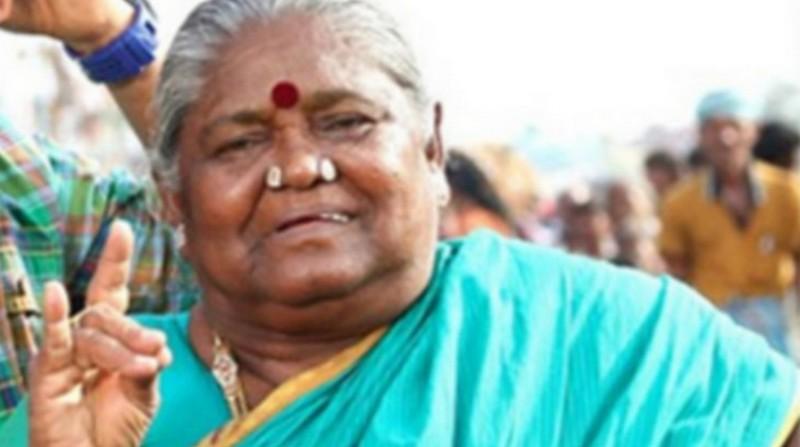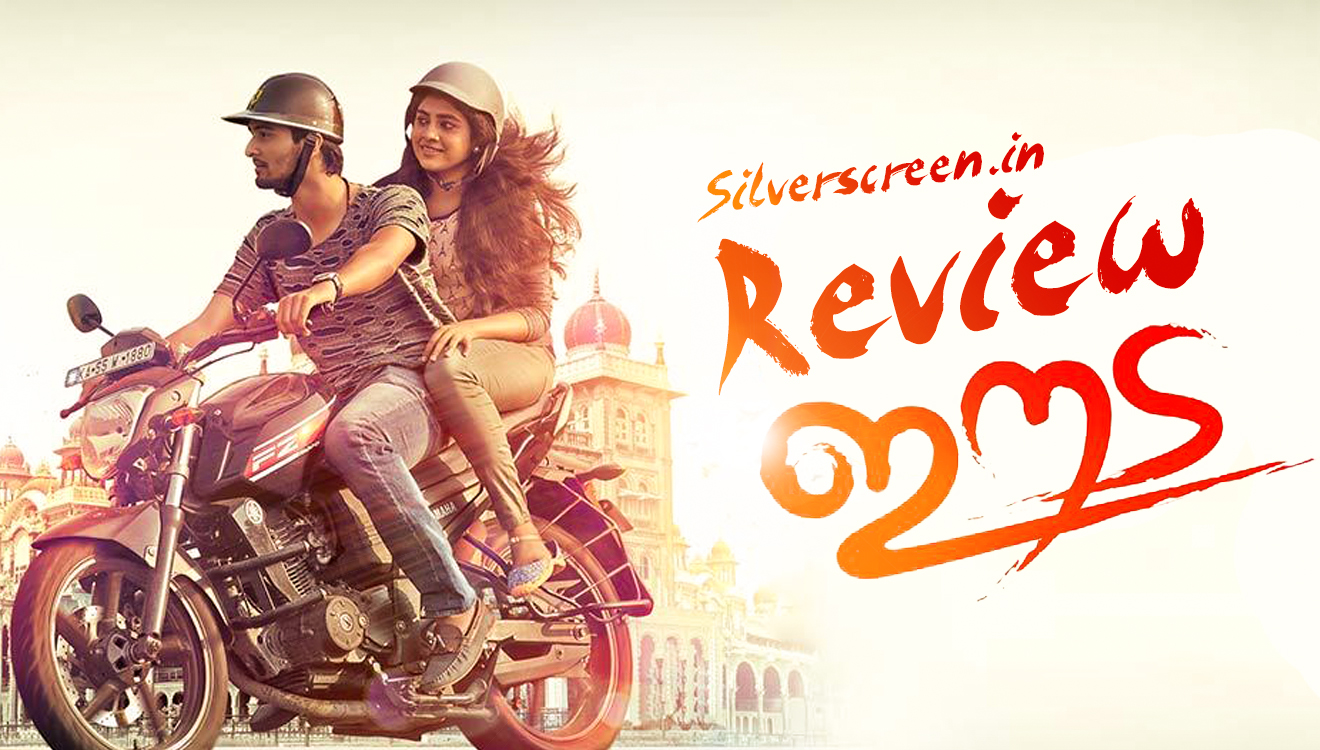D Suresh and AN Balakrishnan are the writer duo behind Ko, Ayan, Yatchan and the recent Thani Oruvan. Silverscreen.in talks to them about their love for crime fiction and emotional dramas, a successful writing partnership for over three decades, and how boring life (and stories) would be without evil.
*****
I meet the writers on a sunny afternoon at their apartment complex in Adyar. Their families live in two flats, facing each other. As we settle for an interview, I notice that the duo look exhausted. They’ve been busy working on the upcoming volume of their home publication Thanga Thamarai (Golden Lotus). “Writers don’t get off days,” they smile. When they realise that my knowledge of Tamil isn’t great, they frown. “We hope you can understand Tamil, at least,” they say. I notice the tone of disapproval. Their love for Tamil language is as deep as their friendship.
This phenomenal partnership began in 1976, when they were students at the mighty Presidency College in Chennai. “The college organised a short crime story contest. The winning entry would get published in Kalki magazine,” Suresh says. He pauses, “Have you heard of Kalki? It’s a 70-year-old Tamil literary magazine.” They were close friends. They didn’t want to compete against each other. So they sent an entry under the name ‘SuBa’.
It was their first story. Titled Visithira Uravuhal (Peculiar Relations). It won first prize, and Kalki published it. “It alarmed our families. They were worried that we might take up writing as a career. We were told to focus on studies.” Well, they ended up in the world of letters. “In 1979, we started writing regularly for magazines like Vikatan, Kumudam and Kalki. We wrote short stories dealing with social and family issues. Or romance. We loved writing emotional dramas. When we started writing novels, we tried our hands at crime thrillers too.”
*****
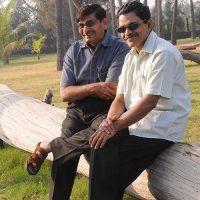
Once they decided to collaborate, they never changed their mind. “We never let ego clashes ruin our partnership,” they reiterate in almost every interview. But how do they find a common ground for their individual writing styles?
Suresh: Both of us are good at writing. If it weren’t so, our partnership wouldn’t have lasted this long.
When I write a story, Bala reads and edits it. When he writes a story, I am his first reader and editor.
Gradually, I became familiar with the kind of words and styles he would never use. I started cutting it out from my style. Now, when we reread our old stories, we both find it very hard to say who wrote what. Our writing styles are very similar now. One of us comes up with a theme. We discuss it together. Then either one of us could write it, while the other will edit.
*****
Although they are writers of fiction, their favourite genre is non-fiction. “Because we believe reality is stranger than fiction,” Bala explains. “For a writer, most of the fodder for his creativity is available in newspapers and magazines. We used to read a lot of stuff on science and technology.
We picked up ideas which we would use in our stories. For instance, there was a blast in Chernobyl. We read about it. We found it very interesting and wrote a short story with a similar blast featuring in the background.”
Suresh completes the thought, “Once we read about a supersonic shield, which scientists were proposing to cover the earth with. We wrote a story about the Indian army manufacturing an invisible gadget for the Prime Minister. Many of our stories pick up ideas from news. Not just from India, but across the world. Everywhere in the world, human emotions are the same.”
Bala: Long ago, we read a very interesting article in the Illustrated Weekly of India. The article was titled “A Spy Who Returned To India”. It was about a spy, who returned to India from a Pakistani prison after 15-20 years. India refused to protect him. His family and life were in shambles. He narrated his own story in the weekly, and we found it very poignant. That was the beginning of our military based stories. We wanted our people living down south to know how difficult it is to be an army personnel, guarding the nation in the border areas.
We were the first writers in Tamil to write army stories.
Suresh: We didn’t write these stories out of nowhere. We regularly met people from the army. We had many readers in the army and we communicated with them through letters.
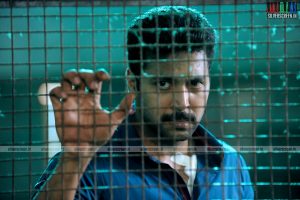
We do quite a lot of research for our films too. We met IPS officers, scientists, and smugglers at Burma Market as a part of our research for films like Thani Oruvan and Ayan.
Some of the stories they shared were stranger than the things you see in the films.
Bala: Also, we keep our eyes and ears open. Whether we’re on a train or at a wedding function. Once a man told us about how his brother found a kidney donor. The family was having trouble finding a kidney that matched his blood group. Finally, they came across a relative, a man with a mental disability. His blood group matched the patient’s. Without even asking the disabled person’s permission, they ‘donated’ his kidney. We wrote a short story based on the ethics of this incident, and it won an award. Even today, it’s one of our best loved short stories.
*****
I ask them about how they entered films. They sound a little annoyed by the words I used. “We never entered cinema. We never desired to be a part of it. We were invited to be a part of cinema, and we consider it as just a part of our journey. Please write this specifically,” emphasises Suresh. “Our passion lies in literature. Even now, after penning many films, our focus is on Thanga Thamarai. Sundar C, who was a fan of our stories, approached us one day, and said he would like to collaborate with us. That was how the screenplay writing began. Before that, director-actor Bhagyaraj used to invite us for story discussions,” says Bala.
Suresh: We enjoy doing anything creative. Writing for cinema is more time consuming. But the characterisation process in cinema is the same as in literature.
We don’t do the kind of things people tell you at a screen-writing workshop. We don’t write a bio, or jot down points about the character nuances. Our characters evolve along with the story.
I mention Thani Oruvan’s Siddharth Abhimanyu, who uses terms like Imbecile and Incorrigible. Very non-Kollywood words.
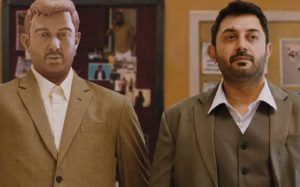
Suresh: We used it to show how educated and self-made Siddharth is. His real name is Pazhani, but he changes it to a classier, more glamorous name – Siddharth Abhimanyu. He’s that kind of a person who uses classy, stylish words to insult others. In Ayan, Suriya, who lives in a petty slum and smuggles for a living, is seen talking in suave English. He’s an engineering graduate, who groomed himself to suit his profession as a con man. He uses a quote from an English movie he likes. These little things about the character pops up in movie discussions.
*****
The toughest part of their job? Watching their film on the first day of its release. “We put in our 100 percent in each film. And sometimes, it doesn’t turn out well on screen. I think, the writing part is easier than this one,” says Suresh.
Of all their screenplays, their favourite is, surprisingly, the emotional drama 180. The film starred youngsters like Siddharth, Priya Anand and Nithya Menon. “It was a very positive story. It’s about a youngster whose life completely changes after he finds out that he’s a terminally ill patient,” says Suresh. Bala adds ruefully, “However, the audience failed to understand the essence of the film.” 180 failed at the box-office.
*****
I once met the writer duo at an event, where they talked about David Fincher’s Seven. When asked about the ending of Seven, where evil wins over the good, they said, “It’s how one wants to look at things. We never want to portray the triumph of evil. We want to give viewers a ray of hope that one day, their struggles in life will result in positive things.” However, they admit that in Thani Oruvan, they didn’t want Siddharth Abhimanyu to lose. “He is a powerful character. A true-blooded self-made man, who has justifications for everything he does. At the end, it’s a win-win situation between him and Mithran, who doesn’t want this brilliant scientist to die. May be he wants to use Siddharth’s intelligence for the goodness of the society, like in the film Catch Me If You Can (2002)”. The conflict between good and evil fascinates them. “It’s a very ancient thing – this conflict. You see it right from the Ramayana.
The presence of evil alongside the good keeps this world balanced. Otherwise, it would be boring.”
The writers are also very careful about not using profanity in their films. “We use such words in life. But we try not to write them into our stories and screenplays. These words have become common these days. Recently, at a restaurant, we heard a girl in her early teens, snapping at her mother. She said, ‘Don’t fuck with me’. We were shocked and amused at the same time. She must have picked up that word from her family itself. One should always be responsible for one’s actions.” I’m reminded of a scene from Thani Oruvan: Ravi tells Nayanthara that people should be careful about their actions, as the ‘kids are watching’.
*****
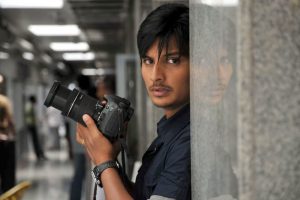
A commercial success, Ko was about youngsters in politics and journalism. “To engage in politics, either one needs to sacrifice everything, or have a sturdy team. Our youngsters are eager to make a change. They are full of energy. But they are confused. When a job from US, with a hefty paycheck comes calling, they would leave everything behind and take off. It’s not easy to be idealistic and ambitious at the same time,” says Suresh.
“The recent strike at the Film and Television Institute of India (FTII) is an example. Youngsters really want to see a change. They don’t want the government controlling their creative decisions. They are ready to fight. But there is another side to it too. Often, freedom and responsibility don’t go together. When youngsters are given all the freedom in the world, they forget their responsibilities towards society,” they say.
*****
The SuBha Interview is a Silverscreen exclusive.


